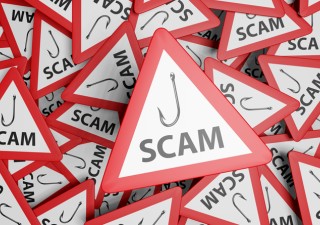International Litigation Chamber to Hear English Trials
19 April 2018

Effective May 2018, South Korean District Courts and Patent Courts will allow for IP cases to be heard entirely in English and other foreign languages under the new International Litigation Chamber legislation. Passed on November 24, 2017, the Korean National Assembly’s amendment to the Court Organization Act creates an exception for foreign languages in the chamber whereby previously all cases must have been heard in the Korean language to have legal effect.
The amendment will allow for submission of court briefs and exhibits, delivery of oral arguments and even expert and witness testimony in English and other languages without requiring it to be translated into Korean. The Korean Supreme Court is expected to issue rules regarding the procedures and requirements for the management of the International Litigation Chamber, including guidelines to determine the cases and languages permissible to such exception.
 “The international chamber would allow foreign litigants to litigate in English – and in the future, in other languages such as German, Japanese, and French – and to submit documents without the need to translate the documents into Korean, and thereby, avoiding translation costs,” says Sun Chang, a partner at Lee & Ko in Seoul.
“The international chamber would allow foreign litigants to litigate in English – and in the future, in other languages such as German, Japanese, and French – and to submit documents without the need to translate the documents into Korean, and thereby, avoiding translation costs,” says Sun Chang, a partner at Lee & Ko in Seoul.
“The most important advantage for foreign litigants, however, would undoubtedly be the opportunity to formulate and present arguments with the correct tone and nuance to the Korean courts that could be pivotal to the outcome of the case,” he adds.
Chang points out that the International Litigation Chamber can offer advantages in time and cost savings over other jurisdictions. “In the context of patent litigation, it is possible for foreign litigants to obtain a first-instance judgment in less than 18 months, and therefore, the Korean courts could be the forum of choice when expediency is at a premium. Moreover, unlike in the United States, patent litigations are not jury trials, and therefore, foreign litigants would be able to avoid the need to explain the underlying technical features of the invention claimed by the patent or the intricacies of the claim language that seeks to capture the technical features of the invention to a lay audience.” Other factors that could influence the decision of foreign litigants to bring their cases to Korea are the ease of enforcing judgments rendered against Korean entities and the comparably lower legal costs.
On the other hand, litigants must weigh the costs and benefits of requiring Korean attorneys to argue, and for Korean courts to listen, in a non-native tongue. “It is possible that conducting the proceedings in a foreign language could impede rather than facilitate the adjudication of the underlying dispute. Such possibility would become more pronounced when the outcome of the case hinges on the precise interpretation of the text, for example, patent claims. In addition, the Korean attorneys would be drafting and preparing all submissions to the Korean courts in their non-native language. The added burden on the Korean attorneys could lead to an increase in legal costs for the foreign litigants [depending on the nature of the case],” says Chang.
Back in June 2017, the Patent Court of Korea held its first-ever English hearing as a test trial in preparation for the international chamber. The trial pitted 3M Innovation Properties Company against the Commissioner of Korea Intellectual Property Office, with Seoul-based law firm Kim & Chang representing 3M. Both parties presented in English during the hearing, and questions and responses from the Patent Court and litigating parties were provided in English. Although only the final hearing and decision were made in English, the test case paved way for the entire court proceeding to be conducted in English in the international chamber in the following May.
“We had 209 cases in 2015 where the parties were foreigners, but in 2016 we had over 300 cases; so there is a special need to give foreigners easier accessibility in Korea,” Patent Court judge Chang Hun-jin, one of the presiding judges for the inaugural English hearing, had told the Korea Herald following the court case.
As July 2018 marks the seventh year the EU-South Korea Free Trade Agreement has been in affect, the business environment is becoming more global by the day. Now the logical question follows: what else can be done to make South Korean courts a more foreigner-friendly place for IP litigation?
“Eliminating the ‘tax’ on foreign plaintiffs seeking to adjudicate their disputes in Korea” was Chang’s answer. “Under Korean rules of civil procedure, a plaintiff that does not have local presence in Korea – that is, the plaintiff has no address, office, or other place of business in Korea – must post security for litigation costs upon request from the local defendant.”
“The purpose of this security is to secure the defendant’s claim for reimbursement of the litigation costs if the Korean courts render an unfavorable judgment against the foreign plaintiff. While there are means of providing security that reduces the burden on the foreign plaintiff, for example, through a negotiable instrument that guarantees payment of the litigation costs, this obligation to post security nonetheless is a source of frustration for foreign plaintiff,” he says in anticipation of a more welcoming system for international cases.






